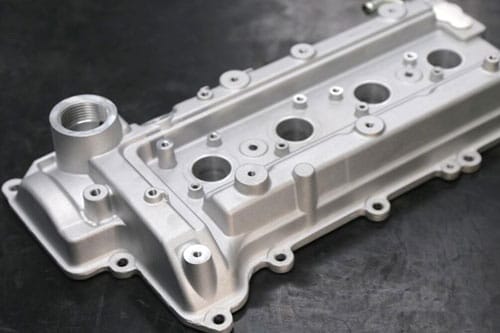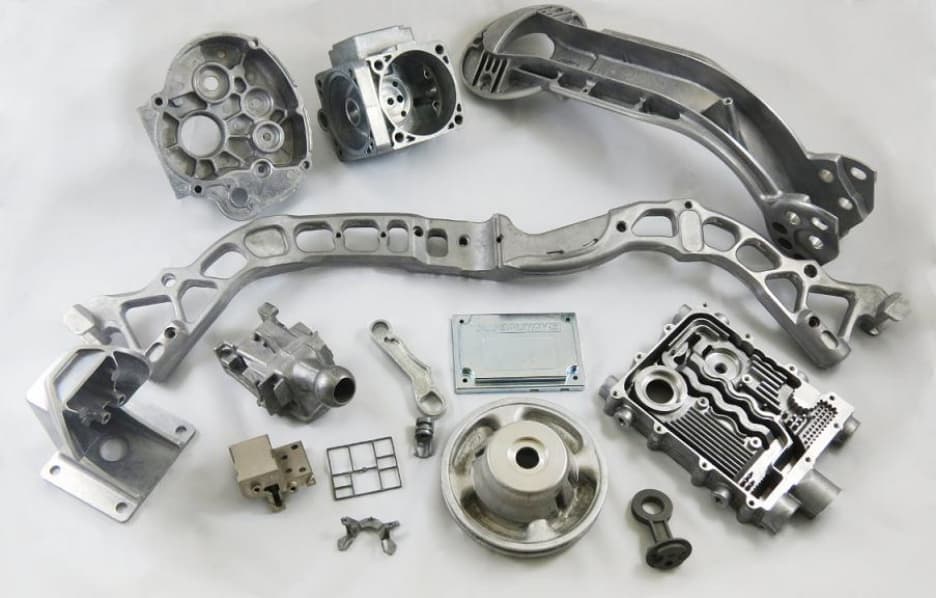Understanding the Role of Aluminum Foundry in Creating High-Quality Metal Products
Aluminum factories are important in the manufacturing of high-quality steel products. They employ different casting techniques, such as sand and pass away spreading, to achieve accuracy and sturdiness. With rigorous top quality control measures in location, these facilities assure that their items satisfy industry standards. As industries evolve, the duty of Aluminum shops proceeds to adjust. This questions about future innovations and sustainability methods that may redefine their effect.
The Aluminum Spreading Process: Innovations and strategies
The Aluminum casting procedure has actually evolved considerably, including numerous strategies and advancements that improve efficiency and item quality. Traditionally, methods such as sand casting and die casting were primary; however, developments have presented procedures like investment casting and low-pressure die spreading. These advancements make it possible for makers to accomplish intricate designs and tighter resistances, minimizing material waste and improving general performance.
Additionally, the assimilation of computer-aided layout (CAD) and simulation software program permits for even more precise modeling and screening, making certain that possible issues are identified early in the manufacturing cycle. Additionally, improvements in alloy formulations result in improved mechanical residential or commercial properties and corrosion resistance
These developments not just enhance manufacturing but likewise promote sustainability by decreasing power intake and discharges. As the market remains to welcome new modern technologies, the Aluminum casting process remains a critical component in generating top quality metal items that meet varied market demands.
Applications of Aluminum in Different Industries
Aluminum's adaptability and desirable properties make it a valuable material across different sectors. In the auto sector, Aluminum is widely made use of for its lightweight characteristics, adding to enhanced fuel performance and performance. The aerospace market also benefits, as light weight aluminum's high strength-to-weight proportion improves airplane layout while maintaining safety requirements.
In building, Aluminum is preferred for its durability and resistance to corrosion, making it suitable for home window frameworks, roof covering, and architectural elements. The packaging industry leverages aluminum's non-toxic nature and recyclability, especially in food and beverage containers, ensuring safety and security and sustainability.
In addition, the electrical market uses Aluminum for its exceptional conductivity in circuitry and transmission lines. The durable goods field uses Aluminum in products ranging from kitchen area utensils to electronic devices, highlighting its adaptability. Aluminum plays a vital function in enhancing capability, effectiveness, and sustainability throughout varied applications.
Benefits of Using Aluminum Over Various Other Metals
While many metals are utilized in different applications, Aluminum attracts attention as a result of its distinct mix of properties that supply numerous benefits over various other materials. Its lightweight nature considerably decreases transportation expenses and energy consumption, making it optimal for markets such as auto and aerospace. Aluminum's superb rust resistance improves longevity, extending the life of products and minimizing upkeep requirements. Furthermore, it displays high thermal and electrical conductivity, making it suitable for electrical and thermal management applications.
The steel's pliability permits for complicated shapes and complex styles, offering adaptability in manufacturing procedures. Additionally, Aluminum is 100% recyclable without loss of top quality, promoting sustainability and decreasing ecological effect. Wisconsin Aluminum Foundry. These qualities, combined with its reasonably low expense contrasted to other steels, setting Aluminum as a favored selection throughout different sectors. In general, the advantages of Aluminum add to its enhancing popularity in the production of high-grade metal products

Top Quality Control Measures in Aluminum Foundries
Quality control measures play an important role in the Aluminum Foundry process, ensuring that the final items fulfill rigorous market requirements and client expectations. These measures commonly begin with product inspection, where raw Aluminum is examined for pureness and make-up. When the spreading process starts, temperature control is important; maintaining suitable molten metal temperature levels stops issues such as porosity and contraction.
Furthermore, non-destructive screening (NDT) strategies, including ultrasonic and radiographic evaluations, are utilized to detect inner defects without harming the castings. Visual inspections are additionally performed at different phases to recognize surface area blemishes.
Adherence to recognized quality monitoring systems, such as ISO standards, is important for maintaining consistency and traceability throughout the production process. Normal audits and worker training on high quality requirements add to an overall culture of quality, ensuring that the products not just surpass yet satisfy customer expectations in performance and longevity.
The Future of Aluminum Foundries: Fads and Sustainability
As the Aluminum Foundry industry advances, emerging patterns and a focus on sustainability are improving its landscape. Raising demand for light-weight and sturdy materials in fields like automobile and aerospace drives innovation in Aluminum spreading strategies. Advanced technologies, such as expert system and automation, are enhancing production efficiency and precision while minimizing waste.
Sustainability is coming to be an extremely important problem, prompting shops to execute eco-friendly methods, consisting of reusing Aluminum scrap and using renewable resource sources. anonymous The shift in the direction of circular economy principles urges shops to minimize ecological influence while fulfilling customer expectations for lasting products.
Furthermore, governing stress are pushing the sector in the direction of cleaner procedures, promoting collaboration in between producers and environmental organizations. As these trends assemble, the future of Aluminum foundries will likely be defined by a dedication to performance, high quality, and sustainability, ensuring their importance in an affordable market.
Regularly Asked Inquiries
What Are the Ecological Effects of Aluminum Foundries?
Aluminum foundries add to ecological influences with power usage, greenhouse gas exhausts, and potential air and water air pollution. Furthermore, mining bauxite for Aluminum can cause habitat devastation and soil destruction, influencing neighborhood environments.

Just How Do Foundries Guarantee Worker Security During Manufacturing?
Foundries apply extensive safety methods, including safety equipment, ventilation systems, and normal training. They carry out danger analyses and preserve security criteria to decrease dangers, guaranteeing a more secure working setting for employees throughout the production process.
What Qualifications Should an Aluminum Foundry Have?
An aluminum Foundry should possess certifications such as ISO 9001 for quality monitoring, ISO 14001 for dig this environmental administration, and OSHA conformity for safety and security requirements. These certifications ensure adherence to market regulations and commitment to quality and security practices.
How Does Aluminum Recycling Affect Foundry Operations?
Aluminum recycling considerably boosts Foundry procedures by offering an economical basic material source, reducing energy usage, and decreasing ecological influence - Wisconsin Aluminum Foundry. It also motivates sustainable techniques, enabling factories to preserve competition in a rapidly developing market
What Prevail Problems in Aluminum Castings?
Typical defects in Aluminum castings consist of porosity, contraction, additions, and surface flaws. These concerns can develop from inappropriate mold and mildew style, inadequate pouring methods, or contamination during the melting and spreading procedures, click impacting overall item quality.
